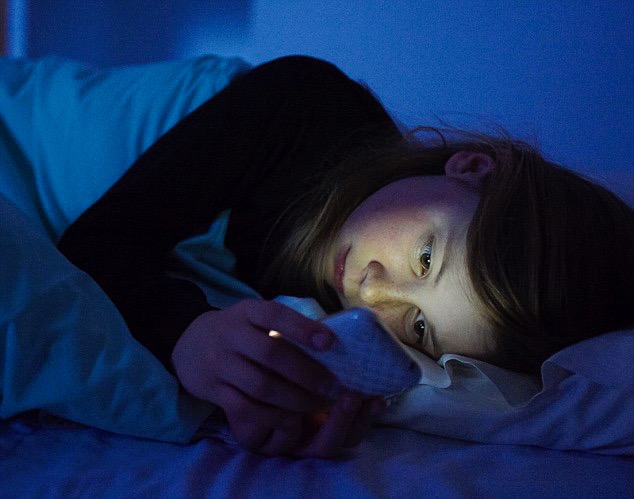Screens Before Sleep
Technological screens are having extremely severe effects on the health of children and adolesence. What can be done?
With all of the time I spend being on my phone, I was completely unaware of the affects it has on my overall health and happiness. Recent studies are showing a dangerous continuing trend of insufficient sleep across children and young adults- the culprit? Screens. According to data from the American Academy of Pediatrics, some form of screen-based media is present in the bedrooms of 75% of children. Of these children, around 60% admit to using their devices within an hour of going to bed. This can have detrimental effects on adolescents’ health, which are commonly overlooked. Firstly, screens before going to bed delays the time one is able to fall asleep. This is primarily due to the emission of blue light; a type of light wavelength that promotes energy & alertness by suppressing the production of the sleep hormone, melatonin. This not only causes difficulty falling asleep, but consequently results in shorter sleep duration. It disturbs the body’s circadian rhythm, or “biological clock,” and disrupts a person’s natural sleep cycle. However, poor sleep quality has a detrimental impact on other facets of health & wellbeing. Without a sufficient night’s sleep, your energy level falls throughout the day as a result. Students who sleep less than seven hours have shown to be extremely tired during the day and unable to focus and concentrate. Considering that the most sleep-deprived group is high school and college-aged students, these effects are especially harmful for us. We are constantly under academic stress- whether it’s meticulous assignments, exams, essays, projects, or presentations, many students are more than willing to sacrifice a night of sleep for extra time to finish schoolwork. Yet, through this behavior, we allow this cycle to continue- staying up late to work on assignments causes us to lose sleep, which prevents us from being productive and focused during class, so we must stay up late again to make up for lost class time. However, the dangers of sleep loss don’t end in the classroom, consider the students just learning to drive. After a late night of studying, the last thing students should be doing is waking up early in the morning and getting behind the wheel. Aside from the potential physical dangers, unhealthy sleep patterns can negatively affect mental health. Studies have shown a strong correlation between sleep and mental illness, sleep disorders being a common problem among individuals with anxiety, depression, bipolar disorder, and ADHD, to name a few. The Harvard Health Journal states that chronic sleep deprivation or continuous unhealthy sleep increases the risk of mental illness. Due to the fact that sleep is closely connected with our cognitive function, chronic sleep loss or unhealthy sleep patterns can not only lower your energy, but can impact your mood and emotions. A poor night’s sleep is regularly accompanied by irritability and a loss of motivation and enthusiasm. In general, teenagers’ health is suffering because of a tech-induced loss of sleep, and things need to change. Luckily, there are a few strategies we can take to combat this. We can begin by turning off our phones 30-45 minutes before going to bed, and limiting our screen use in general. Even by making a few minor changes to our lifestyle, we could be functioning at a higher level both mentally and physically.




